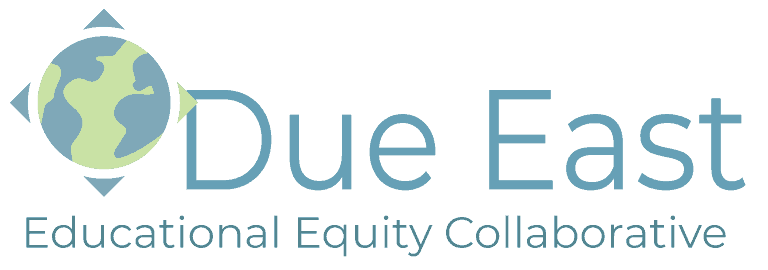Andragogy in Facilitation of Equity and Anti-racism Professional Development
I remember sitting through a teacher workshop where the trainer taught us exactly as she thought we should teach our students, modeling the tone, demeanor, and sequence of the lesson. Walking us through simple steps of cutting out shapes and writing our names on the back of the project. It was excruciating. And I remember absolutely nothing about that session besides how I felt waiting for it to end. As an adult, I need more than basic step-by-step instructions in my learning. I need deeper understanding and higher-level thinking. I would like to be respected for my experience and have opportunities to contribute to collective learning. I don’t want to be lectured because I know I will find more value in conversations with my peers.
These specific adult learning needs are especially important in equity, social justice, and anti-racism professional development because it is crucial that staff take away mindset shifts and practical skills. As facilitators of this work we need to do more than present information and hope it is well-received. We need to balance teaching new paradigms with honoring previous experience, knowledge, and perspectives in the room. We need to gracefully point out blind spots, show how inequitable systems are intricately designed to perpetuate themselves (and how to dismantle them), and work against years of participants’ confirmation bias. This type of facilitation requires us to be intentional in our words and actions, the activities and materials we bring into the space, and the ways in which we monitor and support participants. It is emotional heavy-lifting and an intellectual challenge to push against inequitable thinking and practices while maintaining a space where adults are open to new concepts and willing to engage.
Unfortunately, it can be very easy for equity PD facilitators to fall into the trap of being lecturers instead of facilitators. Whether the concern is that there is a lot of content to cover or a fear of giving people space to resist, the ways in which adults learn best are not always considered during planning or delivery. When we reflect on our own learning experiences– including the journey of being an equity PD facilitator– it’s easy to see that experience, autonomy, and accountability are needed for effective equity and anti-racism PD.
In planning high-quality professional development about anti-racism, equity, and social justice, it is helpful to keep in mind the tenets of andragogy, or adult learning theory. Originally developed by Malcolm Shepherd Knowles, this theory is based on the understanding that adults learn differently than children. While the core principles of this theory describe adult learning in general, they are especially important for equity and anti-racism work because adults’ habits of mind are more entrenched. They may not have had much exposure to (and therefore have less comfort with) concepts of equity. The principles of andragogy therefore show up in ways both obvious and subtle in equity and anti-racism professional development.
Adults need to be involved in the planning and evaluation of their learning.
How does this apply to equity and anti-racism professional development?
Staff need to be involved in planning equity PD. If it comes from an outside organization with no knowledge of previous equity work and no understanding of current initiatives, it could fall flat. When planning, be sure to consult with more than just the principal, superintendent, or boss– include stakeholders from across the organization who are invested in equity work and ready to change policy and practice. Adults often prefer to be self-directed learners and therefore must “buy in” to the content offered; gather background and concerns from as many staff members as possible and use their ideas in the sessions.
There also needs to be a clearly stated reason why equity work is being done. It cannot be “just another thing on our plate.” Equity PD needs to be woven into the current plans and have clear ties to both past and future goals of the organization.
How should this principle be taken into account in equity PD facilitation?
Seek to understand what has already been done in terms of equity PD and offer the next step, not simply a canned presentation (and definitely avoid a one-and-done session!). Whenever possible, address programs, initiatives, goals, and language already used in the organization in terms of equity or inequity. This will show how inequity is already present and must be addressed– it’s not “something new.”
Additionally, equity PD should never be done in a vacuum. Each session should end with carefully-crafted questions to elicit feedback from participants. And that feedback should be used to plan the next session. Not only should it be used to plan, it should be directly addressed in the following session; this kind of transparency allows adult learners to feel heard and valued which is necessary for them to take charge of their learning. Whether that means actually showing them the data or simply stating, “We got x feedback, so we will do y today,” make it explicit and thank participants for their input.
Experience should provide the basis for learning opportunities.
How does this apply to equity and anti-racism professional development?
When I introduce myself to a new group of participants, I am always the first one to point out that I am not an expert– that we all have faulty habits of thinking and imperfect practices– but that we need to learn from one another and from multiple perspectives. Creating space for people to talk to each other is a pivotal opportunity that is not to be missed in adult learning; it is in the wide range of perspectives where participants come to true understanding of concepts and skills. Lecturing from the front of the room is never effective, but it is even more important to shift into a facilitator mindset when working with adult learners. Create space to have discussions, guide participants and groups when there is flawed thinking, but rely heavily on the process instead of the content.
Truly facilitating (instead of presenting) requires more skill in asking thoughtful questions, grouping in ways that are not completely haphazard, and handling resistance. But it also relies on letting go of the need to be in complete control of the session at all times.
How should this principle be taken into account in equity PD facilitation?
Allow a certain amount of “going down rabbit holes” when it will allow other voices in the room to share their expertise and understanding. Yet be prepared to redirect with questions (and direct statements, when necessary) to bring the group back to the topic at hand. Use videos and articles that will connect with the experiences of participants. Engage participants in role play activities to practice how they would respond to racist comments or simulations that require learners to apply newly-acquired concepts. Force some cognitive dissonance– this is beneficial. It is authentic learning.
One caveat with this principle: Do not allow participants to pressure Black, Indigenous, and staff of color in the room to share their experiences with racism “for the sake of learning.” The experience with a whitewashed education system is shared and it is imperative that participants delve into their own role within it. This is the experience necessary to move the room, not a re-traumatization or a microcosm of the system we are trying to shift.
Learning must be relevant and have opportunities for immediate application to daily life.
How does this apply to equity and anti-racism professional development?
While “give me strategies” can be a resistance strategy in equity PD, it is also to be expected from adult learners. If adults do not see the relevance of the mindset and/or do not have an opportunity to apply a new skill to their personal or professional life, they will leave the session feeling dissatisfied. It is especially difficult to connect with this principle when the bulk of the content in your session is mindset work (which is often necessary when laying a groundwork for equity and anti-racism), but we are more than capable of turning theory into practice– we do it all the time.
How should this principle be taken into account in equity PD facilitation?
Take the time to translate theory to practice during the session. If you’re running short on time, do not cut the activity that asks participants to name what they will do based on what they have learned. This may look like a gallery walk or individual journaling, give-one-get-one activity or large-group share out. Even if their action step is to share their learning with someone else, having a way to bring their understanding forward is necessary for adults.
Adults prefer to solve problems as opposed to absorbing content.
How does this apply to equity and anti-racism professional development?
Adults are self-directed learners and therefore need to figure things out for themselves. As a facilitator it can feel arduous to walk through each step in a process, but giving adults answers for the sake of time is counterproductive. Allow the struggle. Be comfortable in the discomfort and model that for others.
This principle also serves as a reminder in equity and anti-racist work to lean in to exploration of our personal beliefs. It is easy for adults to externalize and over-intellectualize issues of equity.
How should this principle be taken into account in equity PD facilitation?
As a facilitator, continually remind participants that though there are large systemic problems to solve, we are all part of those systems and must problematize our own practice first. Looking at larger issues is often easier and more comfortable for adults, but it must first be personal.
Another way to include problem-solving is through case studies. They are popular in equity PD because they require higher-level thinking and problem-solving skills. With the right reflection questions, they can also lead to uncovering inequities in the districts and classrooms of participants, thereby providing more opportunity for application.
In order to plan for and deliver high-quality equity and anti-racism professional development, I often return to these principles of andragogy. They are a reminder that besides offering challenging content, social-emotional support, and accountability, my role as a facilitator also means letting adults learn autonomously and collectively. They value interaction and problem-solving instead of “sage on the stage” lectures and time to explore real-life scenarios. The feedback they offer should be taken seriously and used to plan the follow-up sessions. These principles are useful in many adult learning scenarios, but when it comes to equity PD, we want people to remember so much more than a canned lesson.
Reflection Questions:
- What is the best equity PD session you’ve ever attended? What made it great? Which principles of andragogy did it meet?
- Which of the principles of andragogy is most challenging for you as a facilitator? Why? How might you address this principle in your next session?
- What practical strategies do you use as a facilitator of adult learning? How do they align with the principles of andragogy?
Resources for further learning:
- The Adult Learner: The Definitive Classic in Adult Education and Human Resource Development by Malcolm Knowles, Richard Swanson, and Elwood Holton
- The Profession and Practice of Adult Education: An Introduction by Sharan B. Merriam and Ralph G. Brockett
- Guiding Teams to Excellence with Equity: Culturally Proficient Facilitation by John Krownapple
- Coaching for Equity by Elena Aguilar
- Teaching to Thrive podcast from Abolitionist Teaching Network


